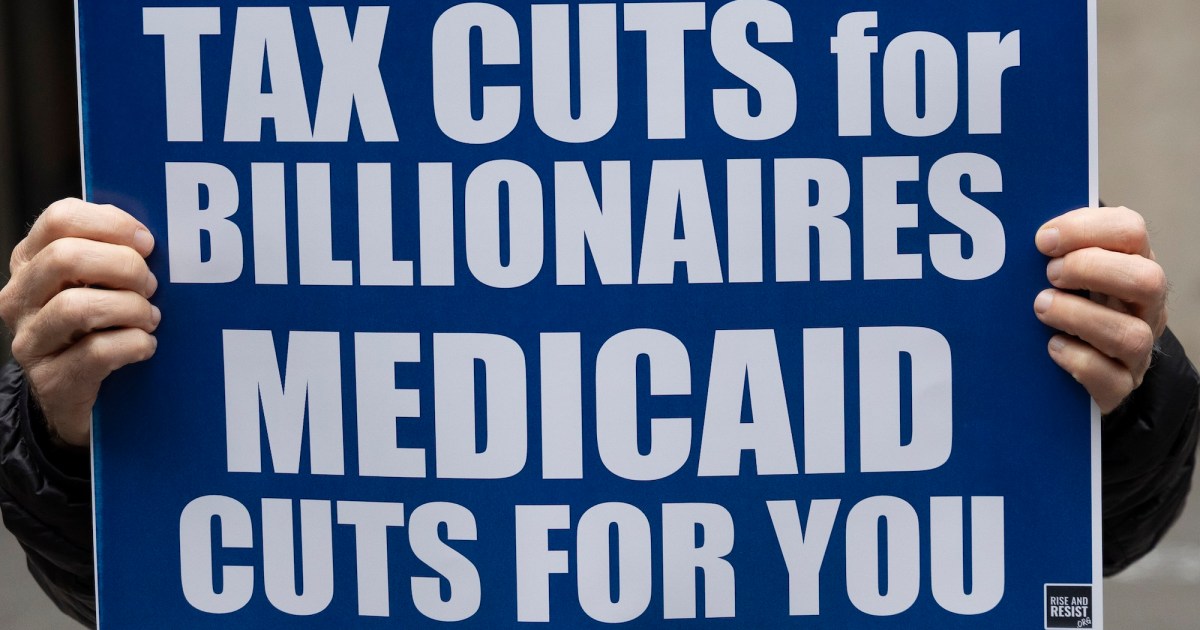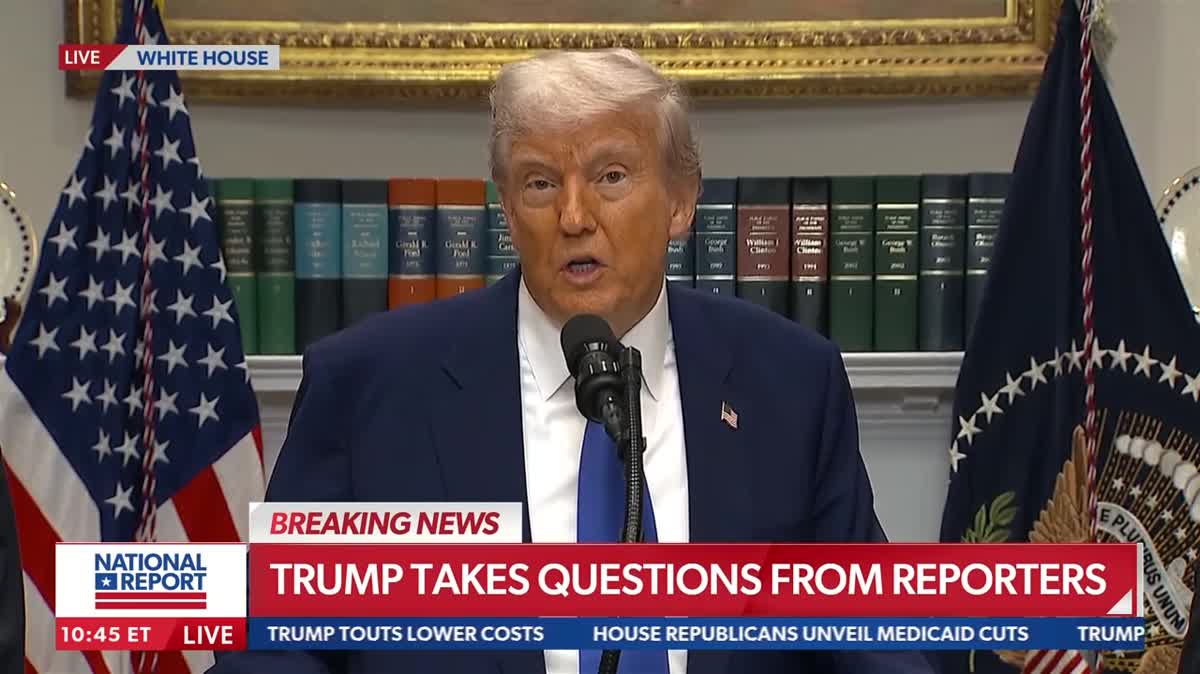On Sunday, House Energy and Commerce Committee Chair Brett Guthrie (R-Ky.) released budget reconciliation text that outlined extensive cuts to Medicaid planned by the Republican Party—which the nonpartisan Congressional Budget Office promptly estimated “would reduce the number of people with health insurance by at least 8.6 million” nationwide.
At least $715 billion would be cut from health programs, according to the CBO analysis, but it is unclear how much would be cut directly from Medicaid. Optional services under Medicaid—including physical therapy, hospice, and respiratory care for people on ventilators—would likely face cuts in many states.
“This bill confirms what we’ve been saying all along, Trump and Republicans have been lying when they claim they aren’t going to cut Medicaid and take away people’s health care,” Frank Pallone Jr. (D-N.J.), the ranking Democrat on the Energy and Commerce Committee, said in a press release Sunday. “Let’s be clear, Republican leadership released this bill under cover of night because they don’t want people to know their true intentions.”
Not all Republicans are on board with the cuts, which appear to be driving fissures within the party. In a New York Times op-ed on Monday, Sen. Josh Hawley (R-Mo.) wrote the following, echoing the types of stories that both Democratic and Republican legislators have shared to try to stop Congress and President Donald Trump from slashing Medicaid:
If Congress cuts funding for Medicaid benefits, Missouri workers and their children will lose their health care. And hospitals will close. It’s that simple. And that pattern will replicate in states across the country.
One of my constituents, a married mother of five, contacted me to explain why Medicaid is vital to her 8-year-old daughter, who depends on a feeding tube to survive. Formula, pump rentals, feeding extensions and other treatments cost $1,500 a month; prescriptions nearly double that cost. These expenses aren’t covered by private insurance. The mother wrote to me, “Without Medicaid, we would lose everything — our home, our vehicles, and eventually, our daughter.”
States are also not in the position to replace slashed federal funding and maintain their Medicaid services, as we wrote in January coverage of potential cuts to Medicaid-funded Home and Community-Based Services:
Given that federal Medicaid funds already make up, on average, one-third of state budgets, [Caring Across Generations chief of advocacy] Nicole Jorwic believes that state governments coughing up the extra cost “is never going to happen.” She notes that health funding is a popular target even in blue states like Maryland, where a $3 billion state funding shortfall has put hundreds of millions of dollars in funding for its human services department funds—where Medicaid is housed—on the chopping block.
The proposed cuts would also prohibit Medicaid funding for Planned Parenthood for the next decade, which accounts for more than a third of the organization’s budget. Those cuts would affect the provision of services such as pap smears, cancer screenings, and birth control, since Medicaid already does not fund most abortions due to the Hyde Amendment. But abortion opponents and hardline Republicans are pushing to defund the organization regardless as punishment for its abortion services and its historic support for the Democratic party.
On a call with reporters Monday afternoon, Alexis McGill Johnson, president and CEO of Planned Parenthood Action Fund, said that Planned Parenthood health centers provide those services to more than two million people annually, and that the majority of the clinics are located in “medically underserved areas, rural areas or areas with health professional shortages.” More than half of its patients use Medicaid and other public insurance programs, she added.
“If patients can’t get care at Planned Parenthood health centers, many will have nowhere to go,” McGill Johnson said, characterizing the proposal as a “targeted attack” and “an attempt to defund a political opponent.”
But the idea appears broadly unpopular. A January poll conducted by the nonpartisan research firm PerryUndem found that nearly three-quarters of respondents—73 percent—oppose defunding Planned Parenthood for services such as birth control, wellness exams, and cancer screenings. Last week, NOTUS reported that some moderate Republicans told House Speaker Mike Johnson (R-La.) they would oppose defunding Planned Parenthood. “The fact is that numerous organizations provide critical health care services for women outside of the issue of abortion, and to cut off funding for those services in any way creates a challenge,” one House Republican told NOTUS.
Additionally, the budget reconciliation text aims to weaken the ability the federal government’s ability to negotiate drug costs for Medicare users—a major move put forward by the Biden White House to make medication more affordable for aging and disabled people in the United States, who regularly pay some of the world’s highest drug costs.















